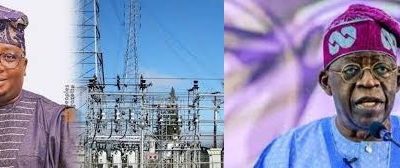FOREIGN NEWS
Climate Change in Nigeria: A Moral Failure, Says UN Coordinator

Abuja, Nigeria – Mohammed Fall, the United Nations Resident and Humanitarian Coordinator in Nigeria, has condemned climate change’s disproportionate impact on Sub-Saharan Africa, calling it not only an environmental injustice but a profound moral failure.
Fall spoke at the Regional Africa Human Rights Academic Network Conference in Abuja on Wednesday, emphasising the devastating effects of rising temperatures, extreme weather events, and environmental degradation throughout the continent.
Fall emphasised that the region least responsible for greenhouse gas emissions, Sub-Saharan Africa, bears the brunt of climate change’s effects. He stated, “This is not just an environmental injustice; it is a moral failure.
The children of tomorrow will grow up in a world harmed by decisions they never made. He described land loss, food insecurity, water scarcity, and displacement as daily realities for millions of people, all of which directly violate basic human rights.
Dr. Tony Ojukwu, Executive Secretary of the National Human Rights Commission (NHRC), echoed Fall’s statement, calling climate change a human rights crisis that threatens lives and livelihoods.
Ojukwu emphasised Nigeria’s unique vulnerabilities, such as annual floods that displaced thousands, droughts that jeopardised food security, and rising sea levels that endanger coastal communities. He also noted the escalation of conflicts caused by the movement of pastoralists looking for pasture land.
The Raoul Wallenberg Institute and the University of Nigeria, Faculty of Law co-organized the conference, which focused on “Human Rights, Environment, and Climate Change.”
Fall cited the UN General Assembly’s 2022 resolution recognising the right to a clean, healthy, and sustainable environment as a universal human right, emphasising the importance of action and the legal foundation for protection.
Fall recognised Nigeria’s unique challenges, which included desertification in the north, erosion and rising sea levels in the south, and erratic weather patterns that disrupt agriculture.
He cited last year’s devastating floods in the northeast, which killed hundreds of people and displaced thousands.
However, he emphasised Nigeria’s resilience and potential to lead climate action and environmental justice by incorporating climate justice into its legal and policy frameworks.
The UN, Fall assured, is ready to assist Nigeria through the UN Sustainable Development Cooperation Framework, which aligns solutions with the Sustainable Development Goals, specifically SDG 13 on Climate Action and SDG 16 on Peace, Justice, and Strong Institutions.
Both Fall and Ojukwu emphasised the need for governments and institutions to take immediate and decisive action to address the crisis and protect human rights in the face of climate change.
-
CRIME3 years ago
PSC Dismisses DCP Abba Kyari, To Be Prosecuted Over Alleged $1.1m Fraud
-
FEATURED3 years ago
2022 Will Brighten Possibility Of Osinbajo Presidency, Says TPP
-
FEATURED2 years ago
Buhari’s Ministers, CEOs Should Be Held Accountable Along With Emefiele, Says Timi Frank
-
BUSINESS & ECONOMY2 years ago
Oyedemi Reigns As 2023’s Real Estate Humanitarian Of The Year
-
SPORTS1 year ago
BREAKING: Jürgen Klopp Quits Liverpool As Manager At End Of Season
-
SPORTS2 years ago
Could Liverpool Afford Kylian Mbappe For €200 million? Wages, Transfer Fee
-
ENTERTAINMENT2 years ago
Veteran Nigerian Musician, Basil Akalonu Dies At 72
-
FEATURED2 years ago
Tribunal Judgement: Peter Obi Warns Of Vanishing Electoral Jurisprudence, Heads To Supreme Court
-
BUSINESS & ECONOMY2 years ago
Oyedemi Bags ‘Next Bulls Award’ As BusinessDay Celebrates Top 25 CEOs/ Business Leaders
-
FEATURED3 years ago
2023 Presidency: South East PDP Aspirants Unite, Demand Party Ticket For Zone



































